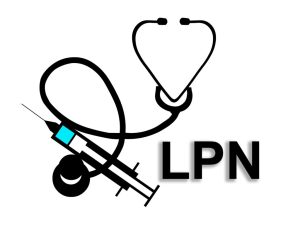
In today’s fast-paced world, it’s essential to have a strong immune system that can ward off illnesses and keep us healthy. But what if you’re feeling a bit under the weather and need a quick boost? Look no further – we’ve got you covered! In this article, we will explore some tried-and-tested methods to supercharge your immune system in just 24 hours. From simple lifestyle changes to powerful natural remedies, get ready to discover the secrets that can help you fight off germs and bounce back to full health in no time. So without further ado, let’s dive into the world of immune-boosting techniques that work wonders within hours!
The Importance Of Getting Enough Rest
Getting enough sleep is often overlooked when it comes to boosting our immune systems, but its importance cannot be emphasized enough. While we sleep, our bodies undergo crucial repair and maintenance processes that help strengthen our immune system’s defenses. Research has shown that individuals who consistently get less than seven hours of sleep per night are more susceptible to viruses and infections. This is because lack of rest compromises the production of white blood cells, which play a critical role in fighting off harmful pathogens.
Furthermore, quality sleep promotes the release of cytokines, proteins that aid in regulating inflammation and infection within the body. When we don’t get sufficient rest, these inflammatory responses can go awry and lead to chronic inflammation. Chronic inflammation has been linked to a range of health issues, including autoimmune disorders and cardiovascular diseases. To ensure adequate restorative sleep, establishing a consistent bedtime routine and creating a comfortable sleeping environment can significantly impact not only the vitality of our immune system but also our overall well-being.
Staying Hydrated For A Healthy Immune System
Hydration is often overlooked when it comes to boosting the immune system, but it plays a crucial role in maintaining overall health. Our bodies are made up of about 60% water, and every cell relies on adequate hydration to function optimally. When we’re dehydrated, our immune system can become compromised, making us more susceptible to illness and infection.
Water helps to flush toxins out of our body and supports the proper functioning of our lymphatic system, which is responsible for carrying immune cells throughout the body. Inadequate hydration can slow down this process, leaving us vulnerable to pathogens. Additionally, staying hydrated helps to keep our mucus membranes moist, reducing the chances of viruses or bacteria entering through these openings.
It’s not just plain water that can help with hydration; consuming foods high in water content like fruits and vegetables also contributes to keeping us hydrated. Citrus fruits such as oranges and grapefruits not only provide hydration but are also packed with vitamin C – another essential nutrient for a healthy immune system. So instead of reaching for sugary sodas or energy drinks when you’re thirsty, opt for hydrating snacks like cucumber slices or watermelon chunks that your body will thank you for.
Eating Right For Optimal Immune Function
Nutrition plays a crucial role in maintaining optimal immune function. Fueling your body with the right nutrients is like giving it a powerful weapon to ward off pathogens and boost your immune system.
- One essential nutrient for immune health is vitamin C. Not only does it act as an antioxidant, but it also helps stimulate the production of white blood cells, which are key players in fighting infections. Incorporating vitamin C-rich foods like oranges, strawberries, and bell peppers into your diet can give your immune system the support it needs.
- Another important nutrient for immune function is zinc. This mineral is involved in numerous processes that contribute to a strong immune response. Zinc has been shown to activate certain enzymes that help regulate cell functions within the immune system. It also helps produce and activate T-cells, which play a crucial role in identifying and destroying infected cells in our bodies. Foods rich in zinc include oysters, lean meat, legumes, and seeds.
In addition to these specific nutrients, focusing on overall healthy eating patterns can also optimize your immune function. Eating a well-balanced diet that includes plenty of fruits and vegetables can provide you with various vitamins, minerals, fiber, and antioxidants that help support a strong immune system. Furthermore, incorporating probiotic-rich foods like yogurt or kimchi into your diet can bolster the health of your gut microbiome – an important player in supporting both digestive health and immunity.
The Role Of Physical Activity In Boosting mmunity
Regular exercise is not just essential for staying fit and maintaining a healthy weight; it also plays a crucial role in boosting the immune system. When we engage in physical activity, our bodies release endorphins that help reduce stress levels. Since stress can weaken our immune system, exercising regularly helps counteract this effect by promoting relaxation and reducing anxiety. In addition, moderate physical activity increases blood circulation, which allows antibodies and white blood cells to travel more efficiently throughout the body and detect foreign pathogens.
Furthermore, research suggests that regular exercise can enhance the production of natural killer cells (NK cells) in the body. These specialized white blood cells play a vital role in defending against infections and tumors. A study published in the Journal of Biomedicine and Biotechnology found that individuals who engaged in regular aerobic exercise had higher concentrations of NK cells compared to those who were sedentary. This suggests that incorporating even moderate amounts of cardiovascular exercise into our daily routines can significantly contribute to improving immune function.
Stress Management:
Stress has become an unavoidable part of modern life, but its negative effects on our health are often underestimated. Studies have shown that chronic stress weakens the immune system, making us more susceptible to infections and diseases. So, it’s essential to find effective ways to manage stress if we want to strengthen our immune system.
- One way to reduce stress is through regular physical activity. Exercise not only helps release feel-good hormones like endorphins but also improves blood circulation and oxygenation of tissues, which can boost the immune response. Moreover, engaging in activities like yoga or tai chi can lower cortisol levels – the primary stress hormone – and promote relaxation.
- Another effective method is practicing mindfulness meditation. By focusing on the present moment and accepting it without judgment, we can calm our minds and reduce anxiety. Research has found that practicing mindfulness regularly decreases inflammatory markers in the body and enhances immune cell activity. Furthermore, incorporating deep breathing exercises into our daily routine can activate the body’s relaxation response, counteracting the effects of stress on our immune system.
In conclusion, reducing stress is crucial for strengthening our immune system and ensuring overall well-being. Regular exercise and mindful practices like meditation can provide significant benefits in managing stress levels effectively.
Conclusion:
In conclusion, boosting immunity is a holistic endeavor that involves not only taking supplements or following a specific diet but also adopting a healthy lifestyle. While quick fixes may be tempting, it’s important to remember that long-term habits and consistency are key when it comes to strengthening our immune system. This means getting enough sleep, managing stress levels, staying physically active, and practicing good hygiene.
Additionally, incorporating certain immune-boosting foods into our diets can have significant benefits. Foods rich in antioxidants like fruits and vegetables can help reduce inflammation and oxidative stress in the body, while probiotics found in yogurt and fermented foods support gut health – an essential component of immune function.
Remember that every individual is different, so what works for one person may not work for another. It’s crucial to listen to your body and consult with a healthcare professional before making any drastic changes to your routine. Boosting immunity takes time and dedication but investing in our overall well-being is always worth the effort!
Also Read: Unveiling The Hidden Secrets Of On-Page Optimization For SEO Success







